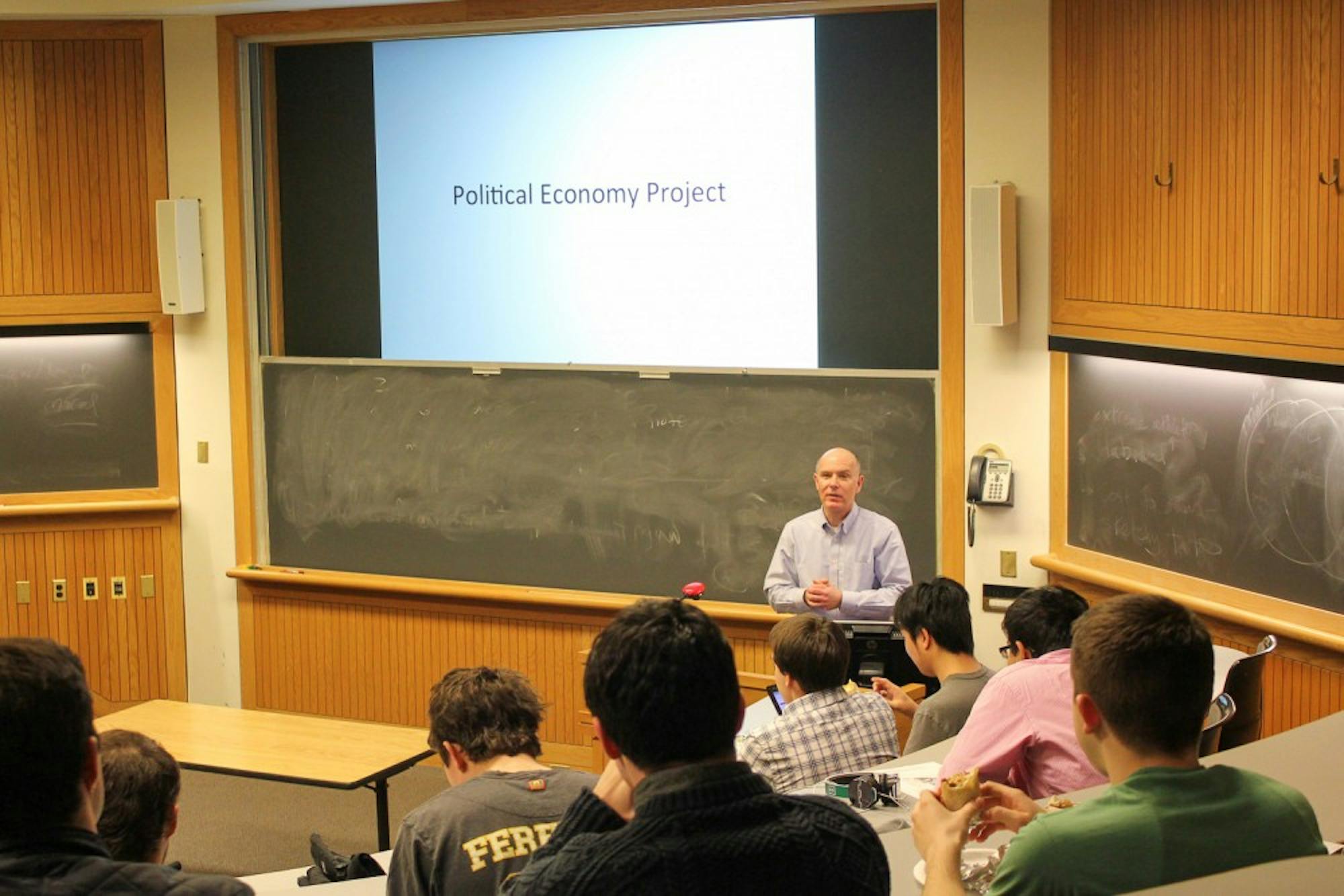Over a meal of summer steak and buffalo chicken burritos, students interested in the link between government and economics gathered in the Rockefeller Center on Monday night for the first of a series of faculty-student dinner seminars hosted by the College’s new Political Economy Project. An interdisciplinary academic initiative launched in the fall, the program aims to further the study of political economics at the College.
Before discussing neoliberalism and neopopulism in South America, project director and economics professor Douglas Irwin outlined his current plans for the program to an audience of over 25 undergraduates. While the dinner seminars currently comprise the project’s main component, other plans include four classes on political economics and a program website, Irwin said.
Economics professor Meir Kohn, one of the program’s founders, said in an interview that the project seeks to uncover how economics interacts with the study of government and public policy, especially how the market interacts with government.
“We’re trying to look at things in a sort of deeper way,” he said. “Not how to achieve just a particular policy goal, but what are the issues, and what are the questions?”
Seminars have been scheduled every Monday through the beginning of February.
A triumvirate of faculty — Irwin, Kohn and government professor Russell Muirhead — launched the program in the fall.
“Politics, philosophy and economics have a lot of synergy between them, and we believe offering this program can lead to tremendous growth,” Kohn said.
The initiative was influenced by similar interdisciplinary programs at peer institutions, like those at Duke University, Princeton University and Yale University.
Rather than receiving funding from the Rockefeller Center — the traditional source economics and public policy programs approach for funding — the project is privately sponsored by a network of College alumni.
“We’re bringing in extra resources to pay for some new classes, new courses and a new faculty member,” Irwin said.
The program will sponsor a Jan. 30 lecture by Lane Kenworthy, professor of sociology and political science at the University of Arizona.
Kenworthy, a sociologist, said he strongly believes that the questions posed by the study of political economics require interdisciplinary solutions.
“Increasingly, I think, academic study is oriented around concepts rather than disciplines,” he said. “There are academic researchers in a variety of disciplines that might have something to add to answering the questions in this area of study.”
His talk will try to define the study of political economics, an issue that has drawn increased interest since the Occupy Wall Street movement began in late 2011, Kenworthy said.
He said he believes the definition of political economics, albeit very general, draws from an interdisciplinary array of fields.
“Nobody really agrees on what it involves, but I take it to broadly have to do with what we understand as economic processes and how they influence and are influenced themselves by politics,” Kenworthy said. “I think, potentially, lots of different disciplines add to this.”




